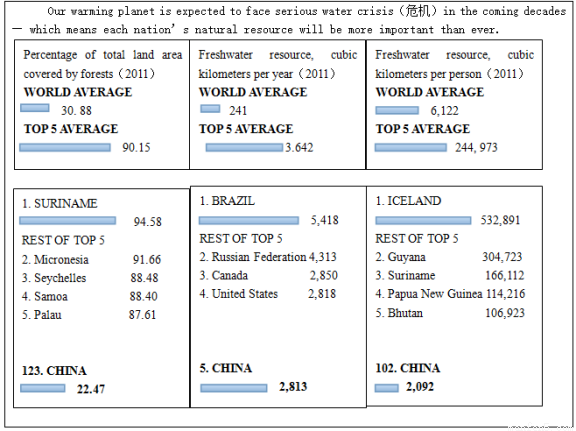题目内容
阅读下面的短文,从短文后各题所给的四个选项(A、B、C和D)中,选出可以填入空白处的最佳选项,并在答题卡上将该项涂黑。
As soon as I saw the cat in our yard, I knew he was a stray (流浪儿). He looked ________—a wounded warrior with a badly scarred body.
I started putting out food for him each day, but he wouldn’t come near me if other people were ________. Winter came, and he still wouldn’t ________ us. Then, one day, a car hit him so we took him to the vet’s.
After a week, we were eager to bring him home to ________ our family. But when we went to take the cat home, the vet told us we should put him to ________ immediately because the cat was so fierce and mean that he would ________ become tame, let alone a pet.
But I have always had ________ in love’s power to ________ even the wildest beasts. I told the vet, “I want to take him home.” We ________ him Paws.
Three days went by, and we only knew Paws was ________ the bed because when we walked past it we heard deep growling.
I wanted to somehow let him know he was ________ and loved. So I put on a hard hat and a pair of welding gloves. I ________ under the bed toward Paws, with my face to the ________ and only the top of my head facing him. I ________ out to stroke (抚摩) him gently over and over again.
He growled and tried to ________ and bite me. It was scary—but I knew he couldn’t ________ me, so I just kept going. Slowly, he began to ________. Then I slid out from under the bed and left the room.
Several hours later, I noticed a cat on the bed. It was Paws—all ________ on the pillows! I couldn’t believe it.
That dear cat became the ________ of our household. Although Paws finally died of cancer, his legacy(遗赠)—my ________ and firm belief in the power of love — lives on.
1.A. cuteB. strongC. fierceD. smart
2.A. aroundB. inC. outD. away
3.A. loveB. attackC. refuseD. trust
4.A. pleaseB. joinC. seeD. satisfy
5.A. deathB. sightC. observationD. sleep
6.A. simplyB. hardlyC. easilyD. gradually
7.A. senseB. interestC. faithD. feeling
8.A. comfortB. convinceC. protectD. tame
9.A. namedB. appointedC. acceptedD. made
10.A. onB. besideC. underD. inside
11.A. hopefulB. pitifulC. carefulD. safe
12.A. hidB. slidC. shelteredD. slept
13.A. bedB. skyC. floorD. feet
14.A. turnedB. pickedC. pulledD. reached
15.A. playB. scratchC. lickD. push
16.A. hurtB. botherC. avoidD. betray
17.A. get angryB. give upC. run awayD. calm down
18.A. stepped outB. stood out
C. stretched outD. stuck out
19.A. hopeB. loveC. supportD. comfort
20.A. normalB. nobleC. strangeD. continued


